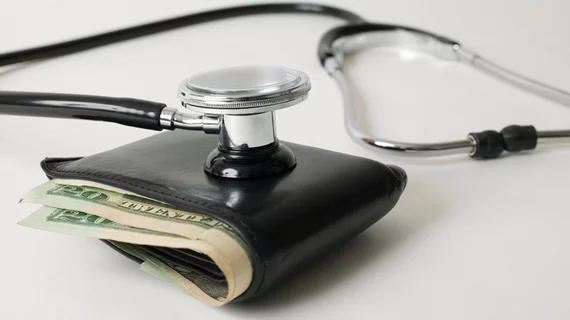Nearly four in 10 Americans are cutting costs due to the high cost of healthcare –– and rising inflation may be making the issue worse, according to a recent West Health and Gallup poll.
Overall, that’s roughly 98 million adults who have delayed or skipped healthcare treatments, trimmed regular household expenses or borrowed money in the past six months in order to afford healthcare in the United States. These actions were much more common among lower-income households, with over half of adults in households earning less than $48,000 per year reporting cutting some spending.
However, the high cost of healthcare impacts wealthier adults, too –– 19% of respondents in households earning at least $180,000 have reported cutting spending to pay for healthcare. The issue also impacts women more frequently than men, and women younger than 50 are disproportionately compelled to cut back on healthcare costs due to its rising costs. Three in 10 women report economizing to pay for healthcare –– and 36% of women under 50 –– compared to 22% of men, according to the poll, which surveyed 3,001 U.S. adults June 2-16, 2022.
For those who can’t pinch pennies to afford healthcare, skipping treatments can have dire impacts. More than one-quarter of adults reported delaying or avoiding medical care or purchasing prescription drugs in the prior six months due to high healthcare prices, and 43% of adults in lower-income households making less than $24,000 per year said the same. Without regular healthcare, those with certain conditions could see their health status deteriorate and acuity rise.
Inflation is likely having a big impact on Americans’ wallets and their ability to pay for healthcare, as 21% of respondents said they delayed or avoided medical care or purchasing prescription drugs because of inflation in general. Overall, the rising cost of goods and services is driving more cost-cutting measures that are non-healthcare related, as well. A whopping 59% of adults reported driving less and 30% reported cutting back on utilities because of the higher price of goods.
Unfortunately, healthcare inflation is likely to continue rising. Healthcare inflation reached 4.5% in June, compared to overall inflation of 9.1% –– 40-year high led by rising prices for gas, food and rent, Gallup found. However, healthcare prices have continued to rise for decades, often much higher and independently than the rate of inflation.
“Inflation has not yet fully hit healthcare prices due to prenegotiated contracts with insurers and providers for 2022, but inflation is likely to impact prices later in the year –– something that consumers may not fully appreciate given the mere 3% that cite healthcare as the service expected to rise in price the most in the next six months,” West Health and Gallup noted.

